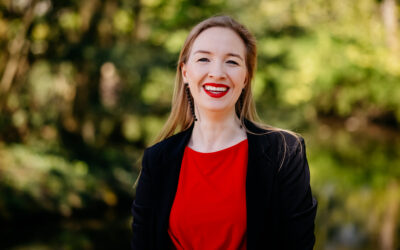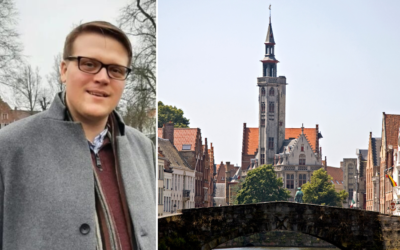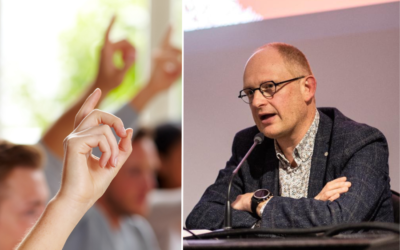Prof. dr. David ENGELS is Belgian historian, lecturer at the Institut Catholique de Vendée (ICES) and senior research fellow at MCC Brussels. He is the author of i.a. “Auf dem Weg ins Imperium” (Dutch transl. 2019), “Renovatio Europae” (English transl. 2019), “What is to be done?” (Dutch transl. 2021) and “Défendre l’Europe Civilisationnelle” (2024). Professor Engels has written extensively on European politics and culture, in particular in French, German and Polish language media.
ROAN ASSELMAN: Professor, we are going to attempt something which has become significantly harder over the past half century, namely describing, maybe even defining, this ‘European Civilisation’ of ours. We’d like to this on the basis of three values which readers familiar with the French Revolution may recognize: liberty (liberté), equality (égalité) and fraternity (fraternité).
But perhaps first this: is it even possible to talk about a ‘European Civilisation’? Do the people of, for example, Belgium, Poland and Spain have enough in common to talk about a common civilisation?
PROF. DAVID ENGELS: Yes, they have, though our education system has successfully eradicated that consciousness which only emerges when these people come into contact with each other or, even more importantly, with foreign civilisations. Thus, only visit a cathedral, a museum or a concert in Warsaw or in Madrid: you will immediately feel at home, even as a Belgian. Or send a Belgian, a Pole and a Spaniard to China – they will all at once realise they are part of the same civilisation and recognise their similarities.
Some may say these experiences are far too rare in order to re-establish a real common identity; but I would say that, ironically, mass migration from Africa and the rise of Muslim parallel societies everywhere in Europe are providing exactly that experience to millions of Europeans every day, which is why so called “nationalist” parties are gradually abandoning their sovereigntism in order to embrace a more civilisationalist point of view.
The three values mentioned earlier, liberty, equality and fraternity, are strongly associated with the (French) Enlightenment. How important was this period for the European identity? And how important was the period before the Enlightenment?
Well, I myself would never identify our civilisation with the values of the so-called enlightenment, because if you look into the history of other civilisations, they all went through analogous phases during their development – think only of Classical and Hellenistic philosophy in Antiquity, Confucius and the “Hundred Schools” in Classical China, the emergence of sceptical “wisdom literature” in the Sumerian and the Egyptian civilisation.
Hence, it is not enlightenment which makes us “European”; it only defines a very specific evolutionary stage which is slowly approaching its natural end. If you look for a true definition of the “European civilisation” as it emerged after the Fall of the Roman Empire, I would rather define it on the basis of the “Faustian” mindset which is indeed archetypical for the West and dominates as well our first, transcendent phase (the Middle ages) as well as the second, antithetic phase, “Modernity”, as it emerged from the 16th century. The cathedral and the skyscraper – both are witness of the same, typically “Western” pulsion, and yet, they express totally different moments of our civilisational quest, as I have tried to show in my newest book “Défendre l’Europe Civilisationnelle”.
Of all three values, ‘liberty’ has perhaps become the value most associated with Europe. Freedom of enterprise, freedom of expression, freedom of religion… But does ‘liberty’ currently occupy its proper place in the European society? Is overrated or underrated?
Once again, I doubt whether the longing for “liberty” is an exclusively European ideal, as we find similar quests (though of course interpreted not through the Faustian lense, but other collective archetypes) in other civilisations.
However, what strikes me as important is that “liberty”, from a “modern” point of view, seems to be essentially liberty “from” something, not necessarily liberty “to” something. Originally, in the Middle Ages, society was essentially designed to guarantee everyone an equal access to transcendence: liberty was defined by a higher aim. After the destruction of confessional unity and the triumph of transcendence over materialism, however, “liberty” was increasingly defined in a negative way and thus led to the systematic, though centuries long dismantling of all communities potentially restricting this liberty: first the church, then hereditary hierarchies and the family, finally the nations and even natural law.
Liberty seems “total” – and at the same time, our society is becoming more oppressive and unequal than ever. For where everything is possible, fundamental decisions are not taken anymore under the auspices of God, tradition and nature, but of “majorities” – which basically means that religious authority has been replaced by the authority of those owning the mass media, and that nobody is left in order to defend anyone against the “dictatorship of public opinion”, as was foretold by de Tocqueville. Böckenförde famously stated that the modern state was built on cultural premises it could not guarantee itself, and as these premises have been largely destroyed, liberty has led to relativism, relativism to nihilism, and nihilism to the “survival of the fittest”.
The second value: equality. ‘Equality of rights’ seems to have been replaced by ‘equality of outcome’ or ‘equity’.
First: Equality, at least in the modern sense, is always a fiction, as there is only one true equality, which is human equality before the highest transcendence. This is also why the church has always insisted, on the one hand, on charity, but, on the other hand, has based the need for charity not on the idea of a “social utopia”, but rather on the recognition of God in our fellow human beings.
Today, however, this original “equality” has been replaced by a purely materialist equality; an equality that is either considered through the perspective of the individual, in which case it results in ultraliberalism, or of the collective, in which case we get the different forms of socialism (depending on whether they focus on class, race or nations as main criterion); two extremes nevertheless ultimately based on so called “enlightened” values and leading ultimately to enormous sufferance, either from poverty and exploitation or from the numerous genocides of “social(ist) engineering”.
Today, both extremes seem to merge into what I have called “billionaire’s socialism”: the masses are largely fed and organised through socialist means and “bread and circuses”, while the controle is in the hands of a very small, incredibly wealthy elite of oligarchs, instrumentalising the notion of “equality” only in order to dismantle the last remnants of Western civilisation under the banner of the “intersectional” fight against patriarchy, colonialism and capitalism (by which they mostly target what remains of the ancient middle classes).
Fraternity has become somewhat of a ‘dirty value’, strongly attached to violent regimes of the 19th and 20th centuries. How important is it, according to you, to feel a sense of brotherhood in European society/societies?
As with “equality”, “fraternity” between two persons only makes sense in reference to a third element. Initially, this was the recognition of God in the fellow human: once you realised that what makes your soul immortal is its co-equality with the highest transcendence, it is impossible not to realise all other humans also possess this nature and are thus, in their true essence, identical to you. Harming a fellow human thus means harming God and harming yourself. But from an atheist worldview, “fraternity” is a mere zoological term which may imply sympathy for others as a possibility, but not as an inescapable obligation: if you deny the existence of transcendence and the immortality of your soul, then there are no absolute rules left, or, as Dostoevsky put it: “If God is dead, everything is allowed.”
To a certain extent, we can transfer this model also to the idea civilisational fraternity. As long as the Europeans realised their commonalities, they were able to bond and feel solidarity, as they knew they shared a common civilisational belonging once largely, but not entirely synonymous with Roman Christianity and then gradually replaced by the idea of (material) “civilisedness”. But today, after Christianity has become largely extinct and the idea of a Western civilisational “superiority” has become anachronistic, the European institutions only focus on values such as “human rights” as markers of identity, which is, as we saw in the beginning, much too vague and at the same time too specific in order to provide a clear distinctive criterion to distinguish Europe from other civilisations not only in the present, but also the past. Without such a feeling of civilisational fraternity, no real solidarity between the European nations can arise, which would mean that in times of crises, everyone will fend for his own. That is why we urgently need what I have called “Hesperialism”: A true European patriotism based on an acceptance of our entire history, identity and tradition and not only on left-liberal multiculturalist humanism.




0 Comments